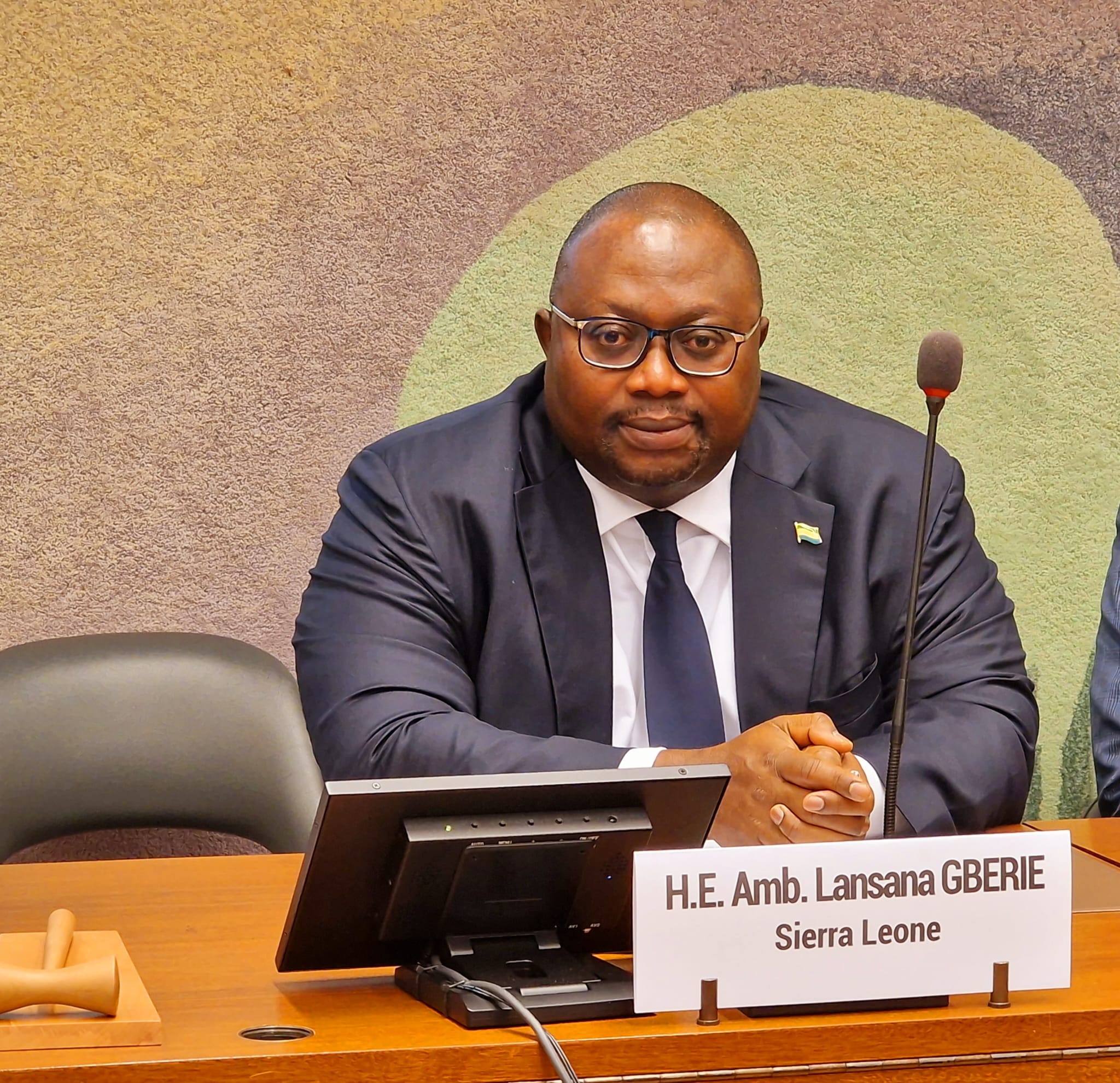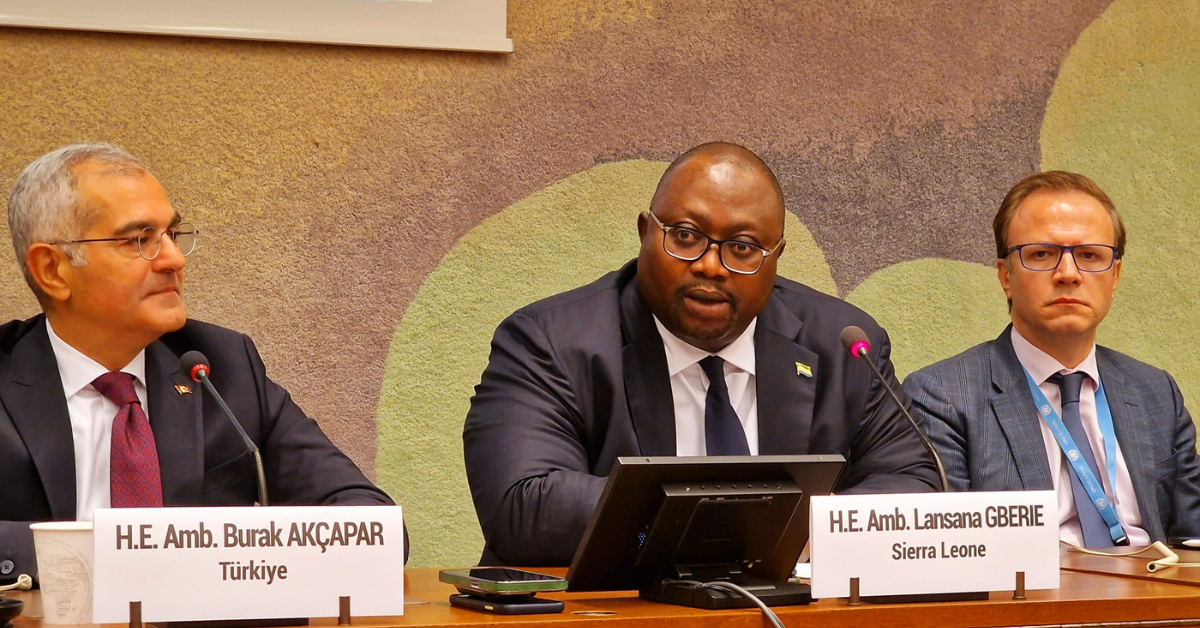Sierra Leone’s Ambassador to Switzerland and Permanent Representative to the United Nations in Geneva, Dr. Lansana Gberie, issued a strong call for international collaboration on toxic waste management during the “Toxics, Zero Waste, Women, and Human Rights” side event at the 57th session of the Human Rights Council (HRC57).
Co-hosted by Sierra Leone, Türkiye, Suriname, and the UN Special Rapporteur on toxics and human rights, the event focused on the gender-specific impact of waste mismanagement, highlighting its disproportionate effects on women and girls.
Dr. Gberie cited the United Nations Environment Program’s (UNEP) 2021 Global Chemicals and Waste Indicator Review, which outlines how women, particularly in low- and middle-income countries, are more severely affected by exposure to harmful substances due to their societal roles.
He drew attention to the traditional fabric processing in Sierra Leone, primarily handled by women, which exposes them to hazardous chemicals in the absence of proper disposal systems.
“Rapid urbanization in Sierra Leone has compounded the issue, with expanding settlements encroaching on former industrial and waste disposal areas, leaving communities vulnerable to toxic exposure,” Gberie said, noting that women in mining regions are particularly at risk as they often work in dangerous conditions.
Dr. Gberie commended the advocacy efforts of the First Ladies of Sierra Leone, Türkiye, and Suriname, who have pushed for increased awareness of zero waste practices.
He also recognized the contributions of the Geneva Environment Network and the UN Special Rapporteur in driving global attention to the issue, while warning that recycling alone cannot mitigate the dangers posed by toxic waste.
Closing his remarks, Dr. Gberie reaffirmed Sierra Leone’s commitment to enhancing waste management systems and protecting vulnerable communities.

He called on nations to act swiftly to meet the 2030 Sustainable Development Goals, emphasizing the need for a healthier environment.
Representatives from UN Women, UNEP, and other organizations praised Sierra Leone, Türkiye, and Suriname for their leadership and urged for further national and global action.


 Post a comment
Post a comment 








